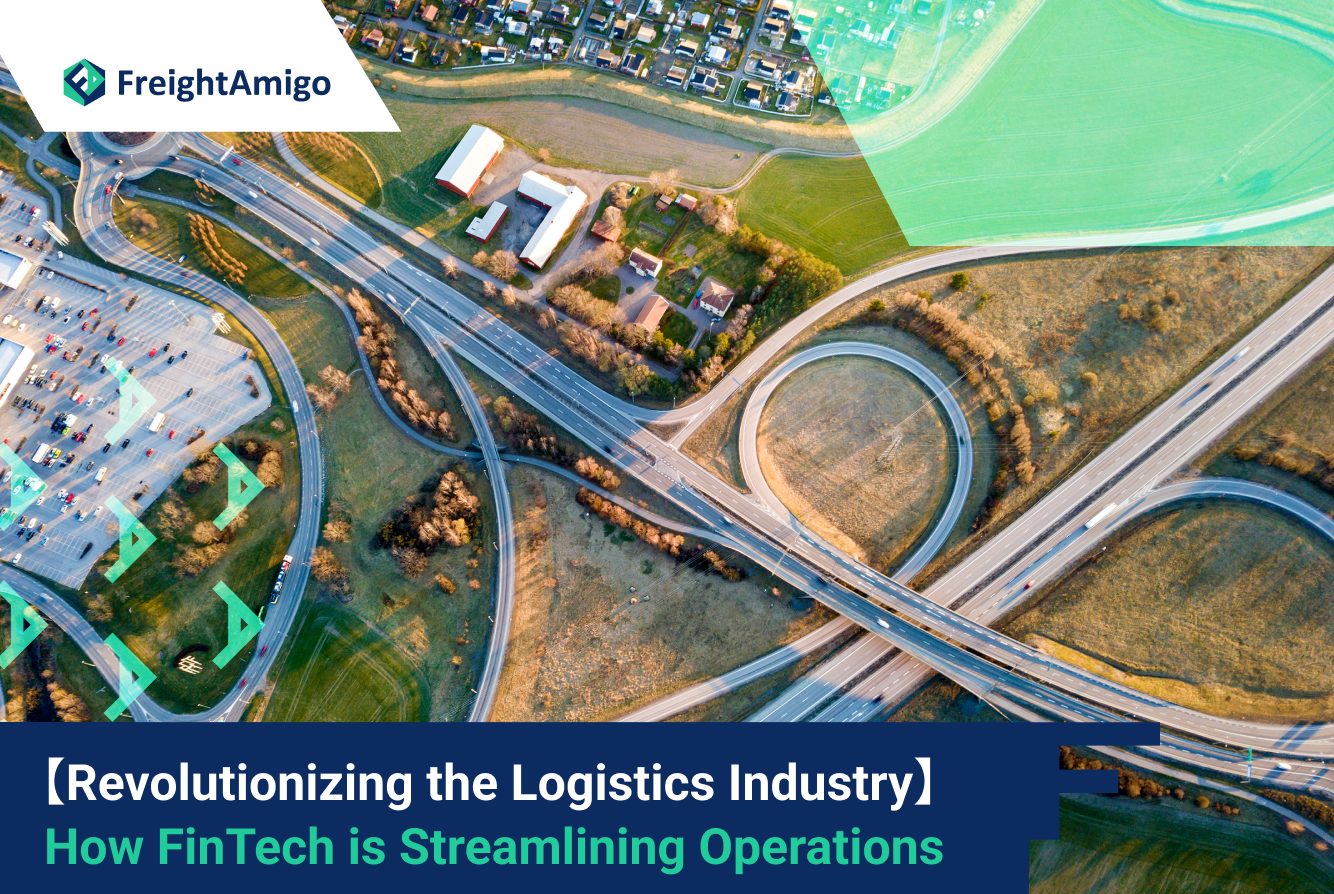Author Name: Tiffany Lee – Marketing Analyst at FreightAmigo
The logistics industry plays a crucial role in the global economy, ensuring the smooth movement of goods and services from one location to another. This sector is vast and diverse, encompassing everything from warehousing and transportation to supply chain management and freight forwarding. Its significance cannot be overstated, as it forms a critical backbone of international trade and commerce.
Like any other industry, logistics faces its own set of unique challenges. These range from managing complex supply chains and dealing with fluctuations in demand, to navigating regulatory hurdles and mitigating environmental impacts. Despite these challenges, the sector has consistently demonstrated its resilience and adaptability, leveraging technological innovations to streamline operations and enhance efficiency.
In recent years, one technology has emerged as a game-changer for the logistics industry – fintech. But before delving into the impact of fintech on logistics, it would be helpful to understand what fintech is and the role of technology in the logistics sector.
Want To Compare The Best Express, Air Freight, Sea Freight, Rail Freight & Trucking Rates So As To Have Better Control On Cost?
What is Fintech?
Fintech, short for financial technology, refers to the use of technology to enhance and streamline financial services and processes. This can range from mobile payment apps and peer-to-peer lending platforms to blockchain-powered smart contracts and robo-advisors.
In essence, fintech is about leveraging digital innovations to make financial transactions more efficient, secure, and accessible. It’s a rapidly growing field, attracting significant interest and investment from entrepreneurs, venture capitalists, and traditional financial institutions alike.
Now, one might wonder, what does fintech have to do with logistics? As it turns out, quite a lot.
The Impact of Fintech on the Logistics Industry
Fintech is making waves in the logistics industry, offering innovative solutions to some of the sector’s most persistent challenges. For instance, blockchain technology, a key component of many fintech solutions, is being used to enhance transparency and traceability in supply chains, thereby reducing the risk of fraud and counterfeiting.
Similarly, mobile payment platforms and digital wallets are simplifying transactions, making it easier for businesses to pay suppliers, receive payments from customers, and manage their cash flows. Meanwhile, data analytics and machine learning algorithms are helping logistics companies make more informed decisions, optimize their operations, and deliver better customer service.
Challenges and Potential Risks of Implementing Fintech in Logistics
As mentioned earlier, implementing fintech in the logistics industry isn’t without challenges. One of the major concerns is cybersecurity. With an increase in digital transactions and data sharing, the risk of data breaches and cyberattacks increases exponentially. Companies must invest in robust security systems and protocols to protect sensitive data.
Another challenge is adapting to rapidly changing technology. The fintech landscape is continually evolving, with new innovations and improvements being introduced regularly. This rapid pace of change can be overwhelming for companies, making it difficult to keep up and stay competitive.
Finally, implementing fintech solutions often requires a significant upfront investment. For small and medium-sized enterprises (SMEs), this can be a major hurdle. These companies often lack the resources to invest in new technologies and may struggle to see a return on their investment in the short term.
The Future of Fintech in the Logistics Industry
Despite these challenges, the future of fintech in the logistics industry looks bright. As technologies continue to evolve and mature, and as more companies recognize the benefits of digitizing their financial operations, the adoption of fintech in logistics is expected to grow.
In particular, the use of blockchain technology in supply chain management is predicted to increase, driven by the need for greater transparency and traceability. Similarly, the rise of artificial intelligence and machine learning is likely to lead to more sophisticated data analysis tools, enabling companies to optimize their operations and deliver better customer service.
Furthermore, as mobile and digital payments become increasingly widespread, logistics companies are expected to adopt these platforms to facilitate faster, more efficient transactions. In the long run, these developments could lead to a more streamlined, efficient, and transparent logistics industry.
Conclusion
As mentioned earlier, implementing fintech in the logistics industry isn’t without challenges. One of the major concerns is cybersecurity. With an increase in digital transactions and data sharing, the risk of data breaches and cyberattacks increases exponentially. Companies must invest in robust security systems and protocols to protect sensitive data.
Another challenge is adapting to rapidly changing technology. The fintech landscape is continually evolving, with new innovations and improvements being introduced regularly. This rapid pace of change can be overwhelming for companies, making it difficult to keep up and stay competitive.
Finally, implementing fintech solutions often requires a significant upfront investment. For small and medium-sized enterprises (SMEs), this can be a major hurdle. These companies often lack the resources to invest in new technologies and may struggle to see a return on their investment in the short term.
There Are Different Options For Cargo Transportation. If You Want To Choose The Most Convenient And Suitable Solution, It Is Best To Have The Full Support Of Logistics Experts! If You Are Planning To Ship Goods Overseas, Please Go To The FreightAmigo Page For Inquiries.
===
Read More:
【Export of USA】 A Gateway to Success and Global Economic Influence
The Key Trade Partners of the USA: Boosting International Commerce
【Export of USA】 US-China Trade War’s Influence on USA’s Export Industry
===
If you have any inquiries on logistics/supply chain, feel free to contact FreightAmigo now:
Chat with us online OR
Phone : +852 28121686
WhatsApp: +852 27467829



